Last week, attentive internet users sent no less than 123,595 suspicious messages to suspicious@safeonweb.be. That is 25% more than the average number per week over the past 3 months. That is good news, because all these people did not fall into the trap of scammers. Thanks to these reports, we were able to block more than 3,000 suspicious links, diverting less attentive people who did click on a fake link to a warning page.
The top three forwarded messages are anything but original. They are messages with the following subjects: "Uw postpakktje wordt nog niet geleverd" , " Uw privacy is in gevaar!" , "Zijn uw gegevens nog correct? ". In recent months we have repeatedly warned against such messages. The vast majority of the messages were in Dutch.
The message that was reported to us the most is still the e-mail that seems to come from bpost and that urges you to pay shipping costs. The message is false. Do not click on the link and delete it.
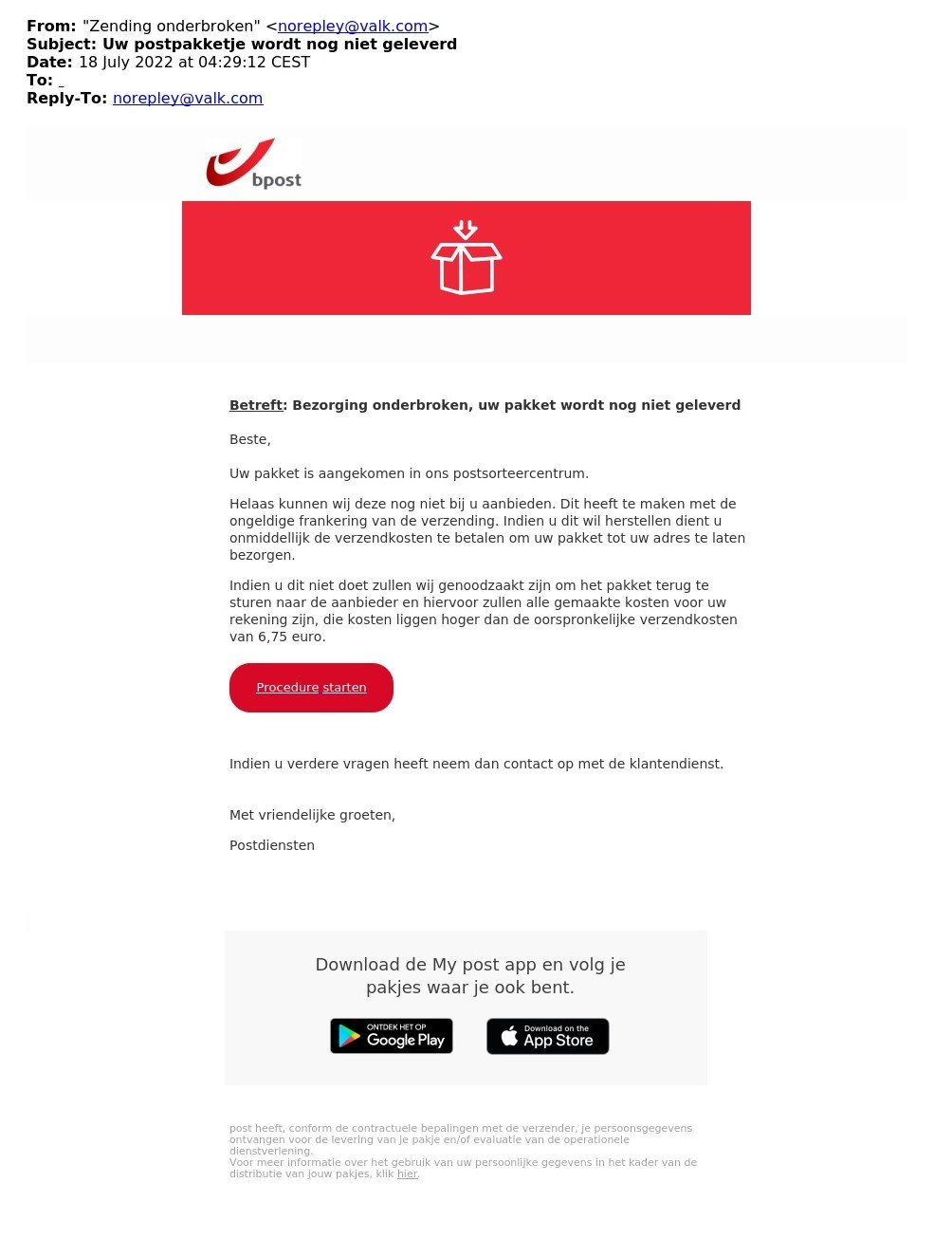
The so-called sextortion scam is still in circulation. Have you received such a message yourself? Don't panic. Do not respond to the request to pay a sum of money and do not answer the e-mail.
With the sextortion scam you receive a message in which extortionists claim that they have hacked into your computer and have taken intimate pictures of you while you were watching porn. The blackmailers threaten to distribute the images on the internet unless you pay a fee. They try to put pressure on you by asking you to do this quickly. They often ask for a sum of money to be transferred in Bitcoins.
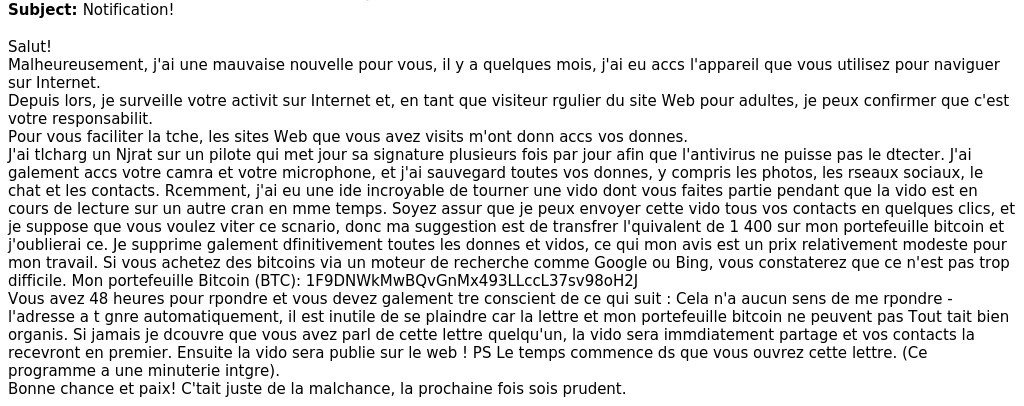
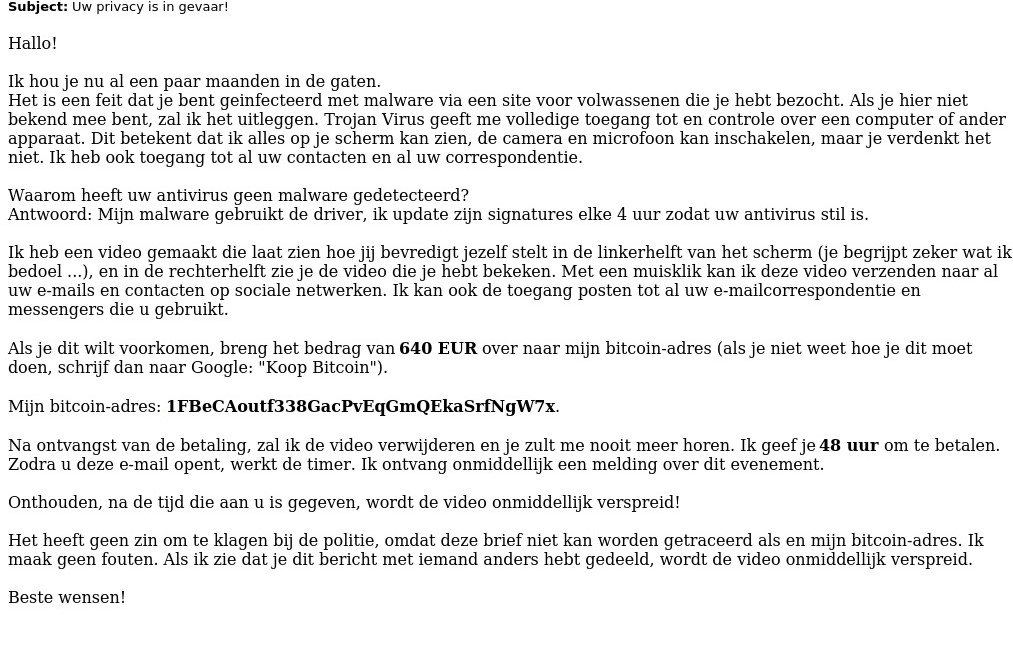
False fines that appear to come from the Dutch national government continue to circulate. We have seen the message so many times that we are no longer surprised by it, but if you are getting this for the first time, you might have doubts. The message is false. Please forward it to suspicious@safeonweb.be and delete it.
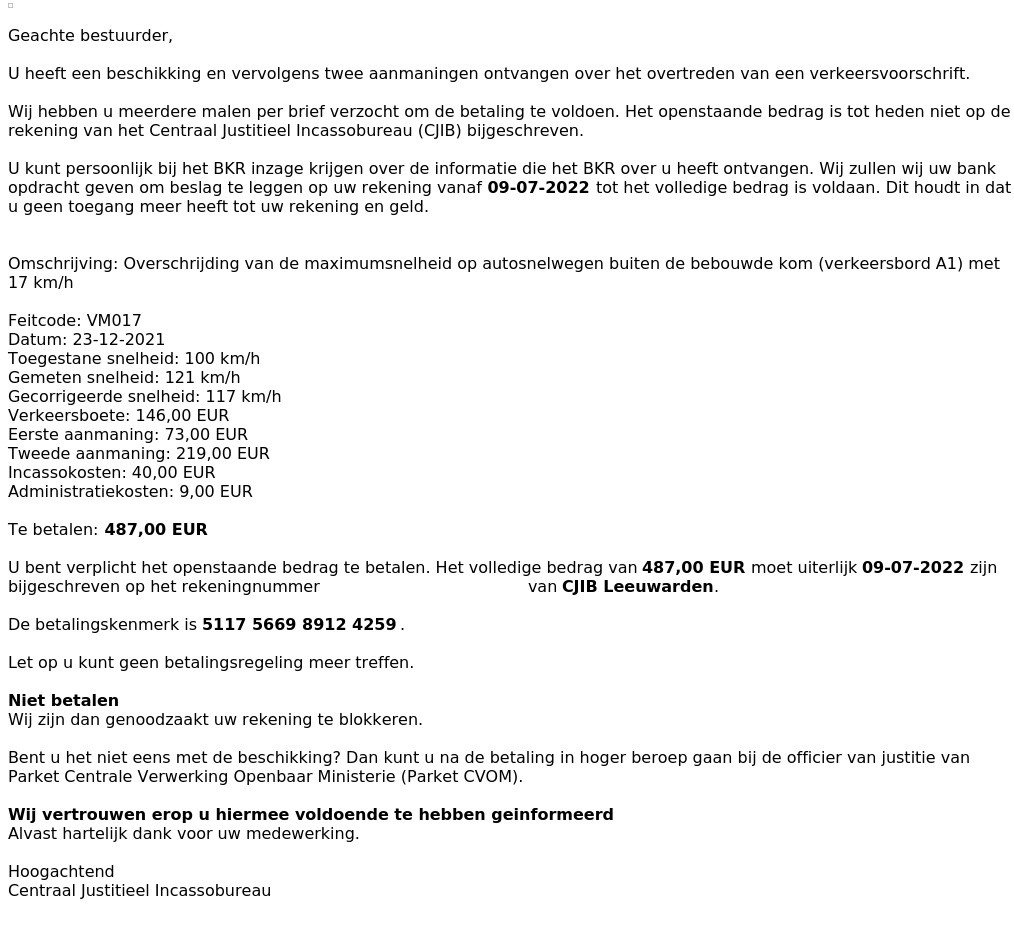
There are a lot of short messages (like the one below) that seem to come from the police and contain an attachment. The attachment is a letter accusing you of sexual or other offences. Do not open such attachments, but forward the message with the attachment to suspicious@safeonweb.be.
What if you get a suspicious message that signs with: "Yours sincerely, pension"? Have a good laugh, forward it to suspicious@safeonweb.be and delete it.
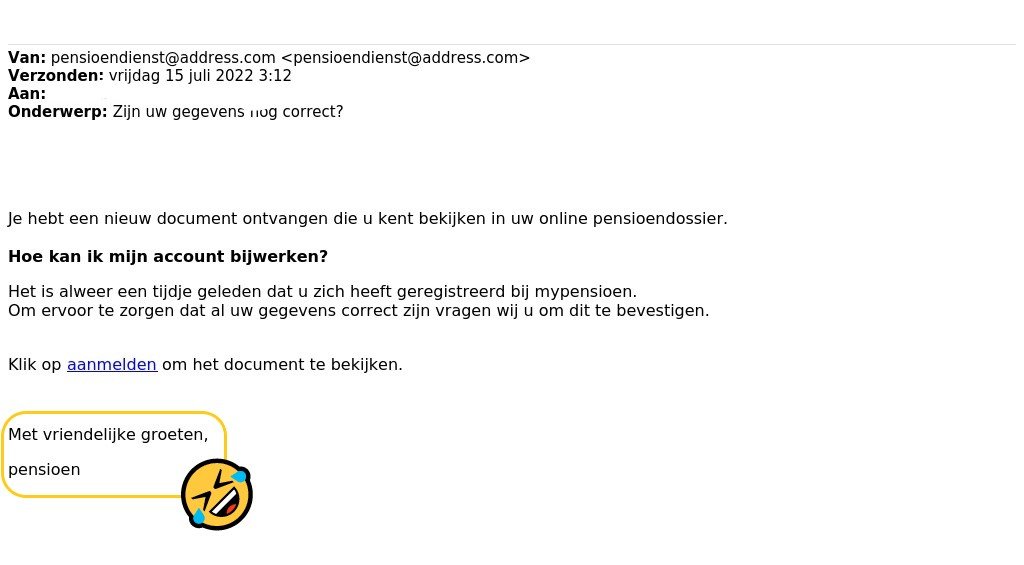
Learn to identify fake e-mails.
Take the phishing test now and don’t be caught out ever again!
What to do?
- Do not click on a link in a suspicious message, do not open attachments and do not download applications if you are asked to.
- Suspicious emails can be forwarded to suspicious@safeonweb.be.
- Suspicious text messages can also be forwarded. Take a screenshot and send it to suspicious@safeonweb.be. The content is then processed automatically.
Did you click on a suspicious link?
- If you have clicked on the link, do not complete the fields and terminate any interaction.
- NEVER give out personal codes.
- If you have entered a password that you also use elsewhere, change it immediately.
Have you been scammed?
- If you have lost money or are being extorted, we recommend that you file a report with your local police straight away.
- Contact your bank and/or Card Stop on 078 170 170 (+32 78 170 170 from abroad) if you have passed on bank details, money is disappearing from your bank account or if you have transferred money to a scammer. In this way, any fraudulent transactions can be blocked.

